Google is facing a shift it hasn't experienced in two decades. A new set of charts shared by an AI industry observer reveals a rare combination of weakening search dominance and accelerating momentum for Gemini—Google's flagship AI model. While Google Search still commands the majority of global desktop traffic, the data shows that foundational metrics are moving in the wrong direction. At the same time, Gemini's user growth and retention are rising sharply, suggesting a clear path forward if Google is willing to commit fully.
Recent data highlights that Google Search's global share of desktop sessions has dropped below 80%, down from 88% a year earlier.
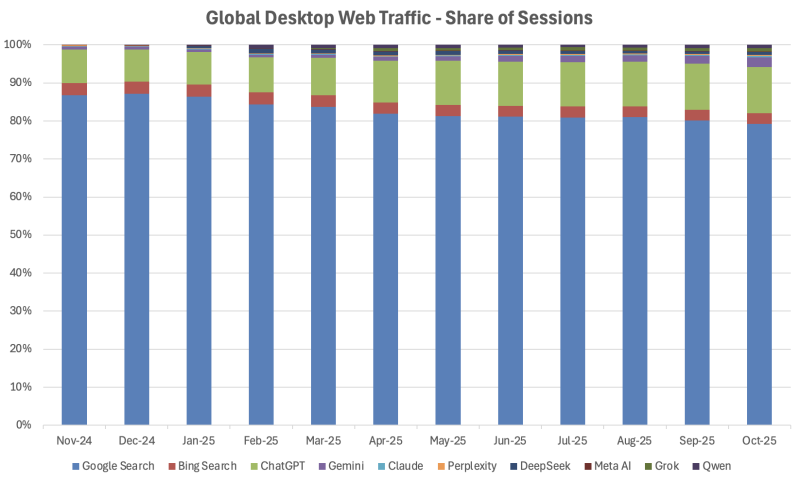
The first bar chart confirms this slow but steady decline month after month.
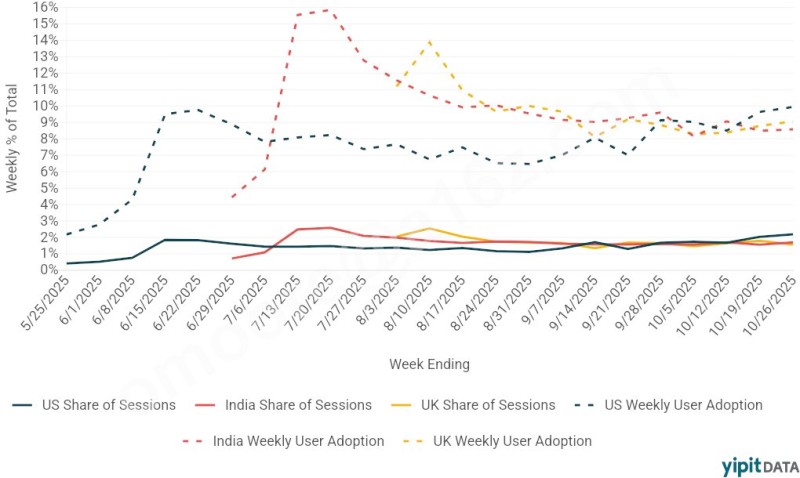
The slip is distributed among several AI-driven competitors. ChatGPT continues to grow its portion of global sessions, Claude and Perplexity show meaningful increases, and Gemini sees a gradual but consistent rise. Smaller models—DeepSeek, Meta AI, Grok, Qwen—add incremental share.
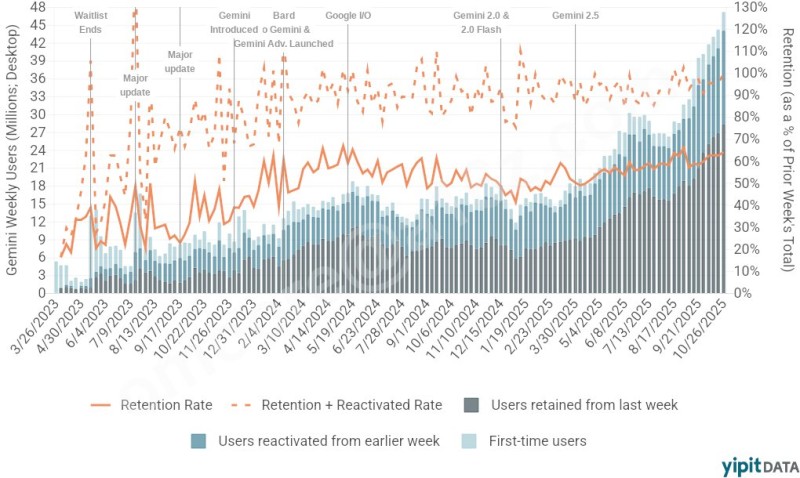
Even small gains matter when they collectively erode Google's historical stability.
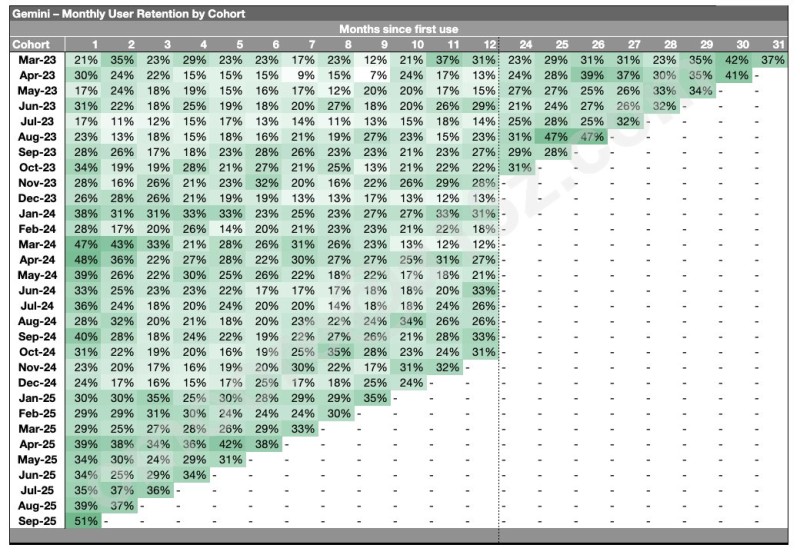
A second metric supports this trend: Google's DAU/MAU ratio has declined to 25%, down from its long-held 28%+ baseline before ChatGPT's debut. This indicates a subtle weakening in daily engagement.
AI Mode in Google Search Shows Weak Adoption
The second chart tracks weekly usage of Google's AI Mode across the U.S., UK, and India. Despite broad rollout and substantial promotion, adoption remains below 10% across all measured regions.
Three patterns stand out. India saw an early spike in adoption that fades sharply starting in mid-July. The UK declines almost continuously through the summer. The U.S. stays flat to slightly rising, but still low overall.
The dotted lines representing weekly user adoption show that initial trial periods did not translate into durable usage. AI Mode is not yet convincing users to change their search habits.
Gemini's User Growth Accelerates Sharply
While Search and AI Mode show signs of stagnation, Gemini is moving in the opposite direction.
The third chart—tracking Gemini weekly desktop users—shows a strong upward trend from spring 2025 onward, doubling from roughly 18-20 million to more than 40 million by October 2025.
Key shifts visible in the chart include a surge in first-time users after mid-2025, growing numbers of reactivated users returning after previous inactivity, and rising retention plus reactivation rate, approaching the 90-100% range.
The major product events labeled on the timeline—Gemini Advanced launch, Google I/O, Gemini 2.0, Flash, and especially Gemini 2.5—line up with visible spikes in user engagement.
Retention Cohorts Show Clear Upward Improvement
The retention heatmap presents the strongest argument for Gemini's momentum. Traditional cohort charts typically slope downward as users lose interest over time. Gemini's late-2024 and 2025 cohorts do the opposite: several of them curve upward, creating the unusual "smiling" pattern.
Examples include the March 2025 cohort moving from 47% to 43% to 30% and then climbing back to 31% later. The April 2025 cohort goes from 48% to 36% to 22% and then rebounds to 27% over following months. The September 2025 cohort starts at a very high 51%.
These upward movements show that as Gemini improves, users come back—even months after dropping off. This is extremely rare in consumer software and usually reflects rapid product improvement driven by model quality gains.
What This Means for Google's Strategy
When all four datasets are viewed together, a clear picture emerges. Google Search is losing ground for the first time in a decade, with declining global share and lower DAU/MAU signaling weakening engagement. AI Mode has not resonated with users, showing under 10% usage and downtrends in major markets that suggest it's not yet a compelling experience. Gemini shows real, measurable traction,
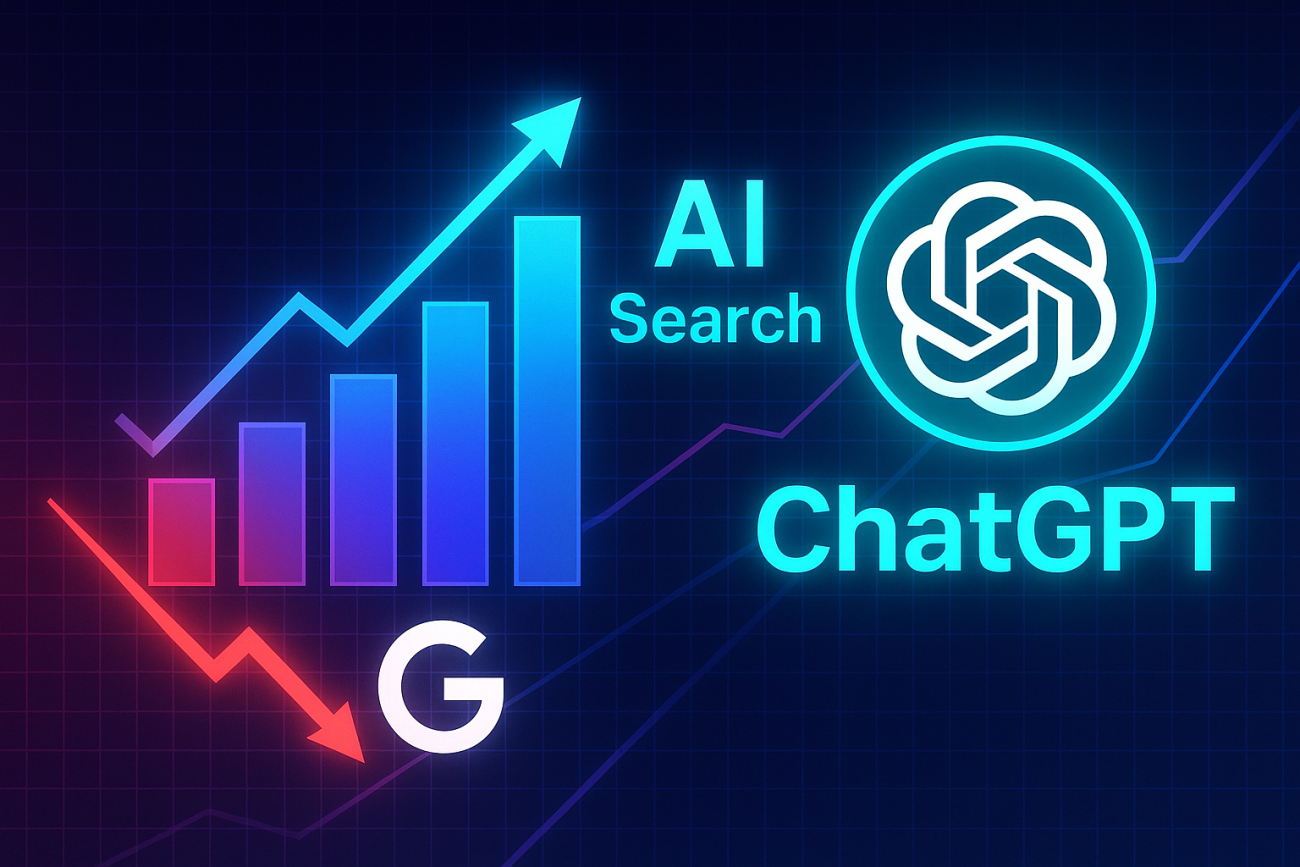
with growth in weekly users, rising retention, and strong cohort performance indicating product-market fit is improving rapidly. The shift toward LLM-based interaction is accelerating, as users increasingly rely on ChatGPT, Claude, Perplexity, and others instead of traditional search.
 Eseandre Mordi
Eseandre Mordi
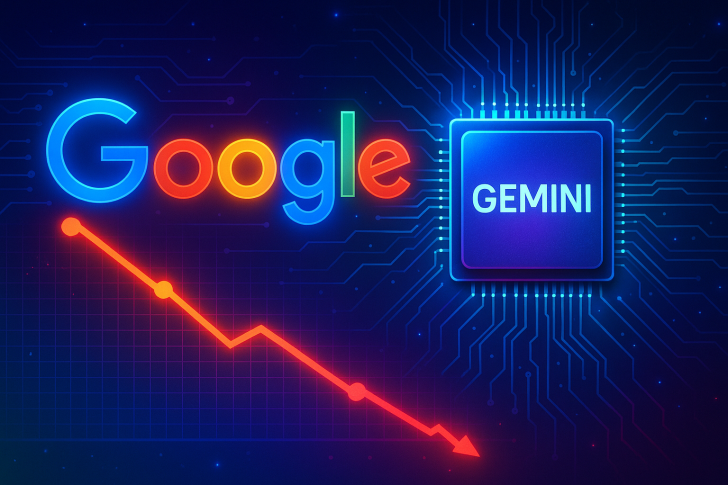
 Eseandre Mordi
Eseandre Mordi


